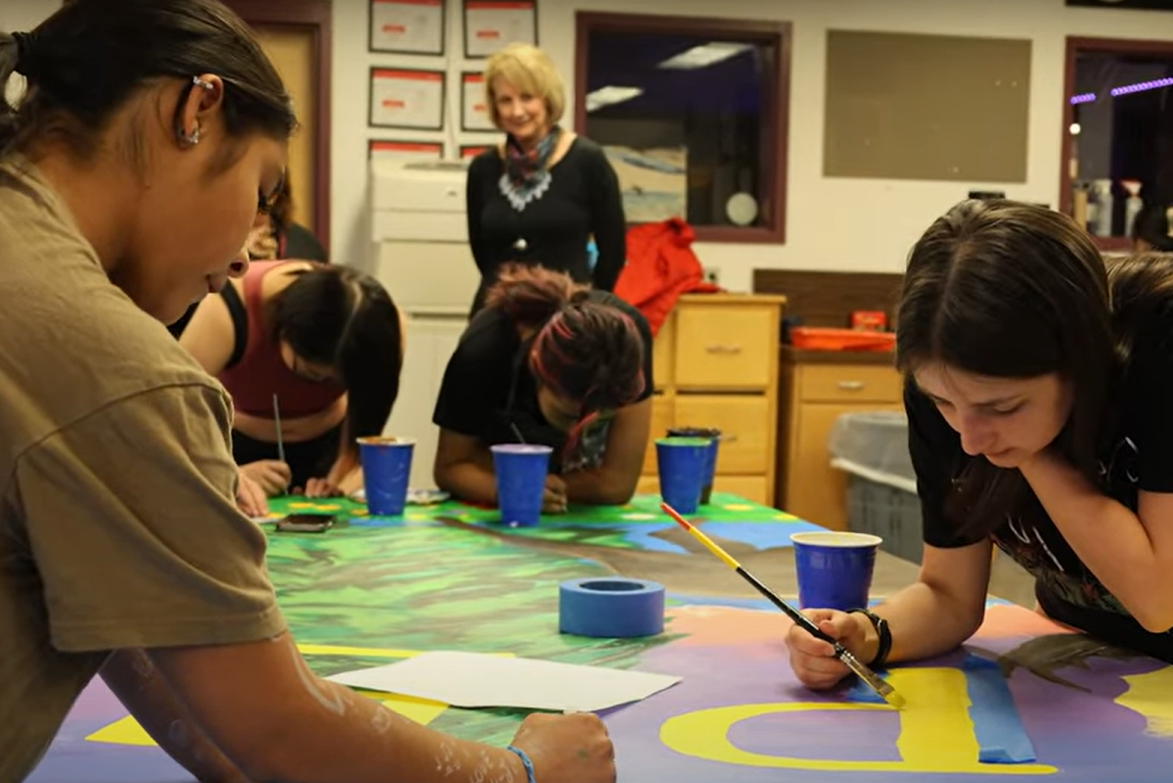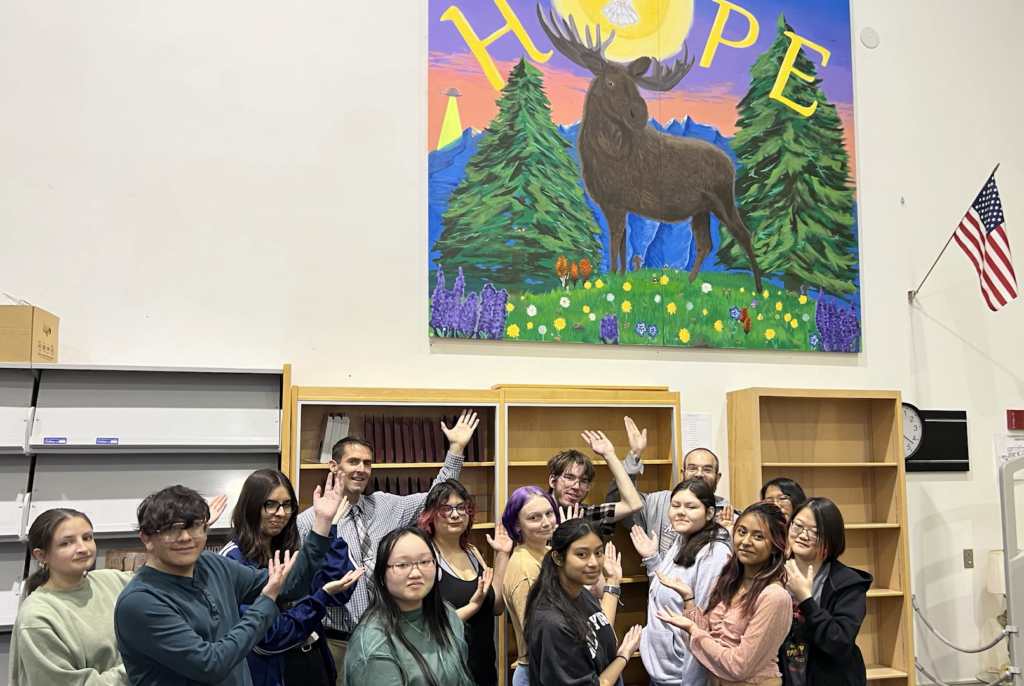
The pandemic laid bare feelings of disconnection and isolation for many Colorado students, and those persisting feelings have led to what some have called a youth mental health crisis.
A new $20 state initiative will support grants for school-community partnerships that support youth mental health, Attorney General Phil Weiser announced Tuesday.
His office is tapping into settlement money from a lawsuit against Juul, the e-cigarette manufacturer, which helped spark a nationwide epidemic of teen vaping. Colorado received nearly $32 million to address the youth vaping crisis, which includes mental health services.
“Kids are suffering,” said Weiser, noting that vaping, thoughts of suicide, self-harm and other destructive behaviors are widespread. “This is a wake-up moment for all of us who are working in this area. This opportunity is meant to catalyze critical action to help our kids.”
Teen anxiety and depression rates were stable in the early 2000s but rose by more than 50 percent between 2010 and 2019. The pandemic exacerbated an already critical situation, with at least one in three high school teens reporting their mental health as poor and one in five of them considering suicide.
The initiative is a call for creative solutions that fit the needs of each community
Each community and school may need something different, Weiser said. It could be hiring more counselors or it may mean more after-school activities, more curriculum that builds coping and problem-solving skills, or a creative idea that hasn’t been tried yet.
Many of the grants may be aimed at building better school cultures where students feel less isolated and more involved.
“Many young people don't know who they can talk to about how they're feeling about the challenges they're facing,” Weiser said. “One of the answers is how can we build more connections between young people and between young people and adults so they can be supported and not feel like they're suffering in silence?”
The attorney general’s office has been communicating with community organizations like the Rose Community Foundation, The El Pomar Foundation, and Caring For Colorado, among others, in the hopes they’ll help lead efforts to partner with schools and potentially add funding to make it sustainable.
Today’s students have different needs than even students ten years ago
Young people are growing up in a world that’s very different than any adult's. Social media has amplified feelings of isolation and not feeling valued. There’s a growing recognition in schools that teachers and staff have to make sure every student has a connection to an adult, especially students who are stigmatized or who have experienced discrimination or trauma, said Linda Reiner, president of the nonprofit Caring For Colorado.
One principal told Reiner that the first thing students today want to know is if you care about them.
“And if you care about them and you can demonstrate that then you've got them and they will learn with you.”
Today’s students will also challenge you because they want to know they’re being heard, she said. Some teachers are better than others at creating a classroom climate that’s supportive and nurturing. Her organization, in partnership with the nonprofit Colorado Education Initiative, is implementing strategies to help teachers and administrators in 13 school districts.
“It is working within the schools to develop these rings of support that include peer, staff and teacher support and reaching out to engage parents more,” she said, or connecting students with more intensive psychological or emotional needs to support outside the school.

Some initiatives already underway could serve as models using the new state funding
Delta High School discovered just 25 percent of students participated in athletics and the other 75 percent weren’t connected to any after-school clubs, often because they couldn’t afford them. Grant money pays for stipends for teachers to add more cost-free clubs to help kids build friendships and have something to do after school.
“Building that belonging and connection… that's so important as a protective factor for mental health,” said Reiner.
The district also changed the way it addresses discipline issues. Instead of sending disruptive kids to the principal’s office, there is a four-step process in which teachers and staff try to get to the root of the problem before developing a behavior contract that involves parents. Reiner said school administrators describe a “sea change” in their school.
“It's teachers modeling, ‘I care about you, I need to know about you.’ This is part of what (Colorado Education Initiative) trains on a lot, which is, kids are not going to be able to learn if their heart is hurting. And so how do you show kids that you care?”
Alamosa High School has trained teachers on what a trauma-informed classroom looked like.
Grand Junction High School makes sure every kid has at least one connection to a trusted adult. There are social and emotional components for graduation requirements and a youth council that regularly meets with the principal. The school eliminated the dress code which caused regular conflicts between students and staff. Reiner said the school has seen a reduction in truancy and reports of suicidal thoughts.
“The attorney general’s money is real money,” Reiner said. “I think it’s an opportunity for some scaling of the good ideas.”
Some of the Denver Broncos Foundation’s current projects to reduce barriers to accessing mental health services could be other models.
Transportation is a significant barrier for youth. The foundation just launched a mobile mental health unit in partnership with Denver Area Youth Services to bring services directly to students in school and in after-school programs.
The foundation partners with another organization to provide a space for Latino youth to access mental health services. It also funds free therapy sessions for youth exiting the justice system and is exploring ways to expand free professional counseling for rural youth at risk of suicide.
“Really focusing on getting access to youth who need it the most, especially knowing that wait times in Colorado for seeing therapists is so long,” said Allie Engelken, executive director of the Denver Broncos Foundation and vice-president of community impact.
The foundation hopes the $20 million initiative spurs more collaboration across Colorado. Next summer, it will host a convening for schools and partners to share the most effective ideas and practices in schools across the state.
“I think it will be a learning opportunity so that Colorado can share findings not only statewide but throughout the country as well,” said Engelken.
Applications will open in fall 2024 and close in January 2025.









